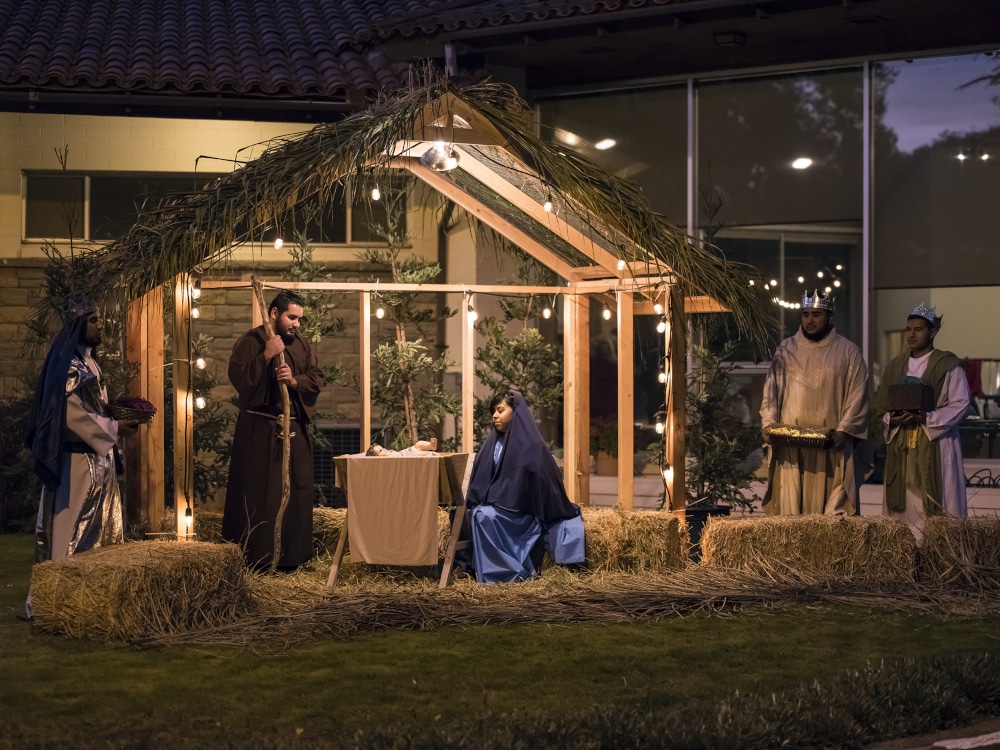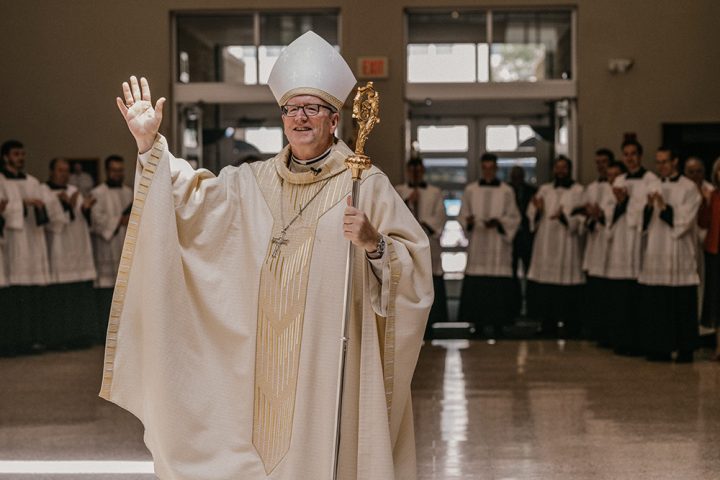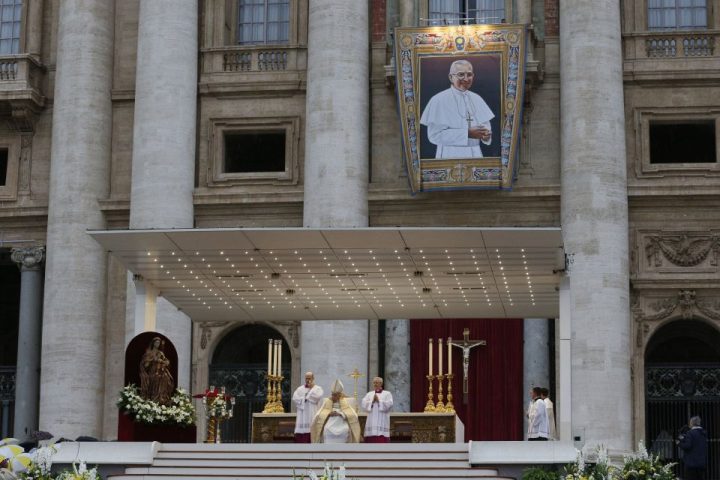
This December, Christian congregations will belt “O Come, O Come, Emmanuel” and priests will wax poetic about Old Testament prophecies. As they do so, a group of Jewish, Christian and Muslim educators is calling on them to examine where antisemitic ideas might be lurking undetected.
On Dec. 14, the Council of Centers on Jewish-Christian Relations — a group of roughly 30 member institutions dedicated to mutual understanding between Jews and Christians — issued a public statement calling U.S. churches to confront the crisis of antisemitism. “We implore all churches to redouble their efforts to denounce antisemitism publicly as antithetical to the very essence of Christianity itself,” the statement said.
The group cites the blatant spread of antisemitic conspiracy theories by pop culture icons and politicians alike as reason for the statement. “The United States is facing the greatest crisis of public antisemitism in a century,” the statement claims, warning that “we may be witnessing the normalization of antisemitism in American discourse, which recalls events that happened in Germany when the Nazis rose to power in the 1930s.”
“The fact that Jews and Christians can work together on a document such as this as colleagues and friends shows how far we’ve come, and how much more we can do together to stop hate and antisemitism and build bridges of respect and understanding,” said Rabbi Eric J. Greenberg, one of the drafters and a CCJR member.
The Anti-Defamation League reported a 34% increase in antisemitic incidents in the U.S. between 2020 and 2021. A 2021 survey from the American Jewish Committee found that 60% of the general public sees antisemitism as a problem.
But CCJR’s statement asks Christians to look beyond the antisemitism happening outside their congregations to evaluate their own theologies and teachings for anti-Jewish sentiments. Much of Christian preaching today acknowledges a Jewish Jesus born into an expressly Jewish context, but also implicitly paints a portrait of a Jesus whose arrival made Judaism obsolete.
The distinction is critical, scholars say, because framing Jesus in opposition to Judaism easily leads to envisioning Christians in opposition to Jews — a common motivating theory in white supremacist ideologies.
“One of the features that made it difficult for Christians in the Nazi period to critique Nazi antisemitism and racism was the fact that they had inherited a sense of oppositional identity. Christians were against Jews, Jews were against Christians, Jesus must have been against Jews,” said Philip Cunningham, director of the Institute for Jewish-Catholic Relations at St. Joseph’s University in Philadelphia and a co-author of the statement.
During Advent, the current liturgical season when Christians prepare spiritually for Christmas, there can be a tendency to frame Judaism as a flawed precursor to Christianity, some scholars suggest.
Daniel Joslyn-Siemiatkoski, a scholar of Jewish-Christian relations at Boston College and an Episcopal priest, noted that it’s important for Christians to be able to interpret Old Testament passages such as Isaiah’s prophecies as referring to Jesus. However, the trouble occurs when Christians claim those passages must be interpreted that way exclusively.
“To say that the meaning of sacred Scriptures are over for Jews, because Jesus has come, fuels a sense that there is no longer a reason for Jews to exist,” said Joslyn-Siemiatkoski. “That can feed into a popular antisemitism, where people can ask, ‘Why are Jews even here, if their Scriptures have been fulfilled?’”
Anti-Jewish theology can sneak into worship via beloved hymns. Growing up as a Methodist, Joslyn-Siemiatkoski loved the Advent tune “Lo! He Comes with Clouds Descending,” but now he trips over the second verse: “Those who set at nought and sold him / Pierced and nailed him to the tree / Deeply wailing / Deeply wailing/ Deeply wailing/ Shall the true Messiah see.”
“Charles Wesley is repeating this long-standing Christian notion that Jews are responsible for the death of Jesus; they rejected him as the Messiah. When Jesus comes back, they will wail and will be punished for their disbelief,” said Joslyn-Siemiatkoski.
Elena Procario-Foley, professor of religious studies at Iona University in New York, told Religion News Service that “O Come, O Come, Emmanuel” could also be read as hostile to Jewish people. “So Israel is captive, and the understanding is they are in exile because of their sin,” she said, referring to the first verse. “And Jesus is going to appear and solve all these problems.”
Procario-Foley said it’s unhelpful to think of Judaism as merely a frame for Christianity. “When we use darkness versus light, hell versus the Christian Messiah, when we do these zero-sum dualisms, we are adding to this polarization. And religious people should be trying to lead the way through the polarizations we find ourselves in.”
Christians should be able to celebrate their faith, Procario-Foley said, without wielding negative comparisons against Judaism.
Joslyn-Siemiatkoski and Procario-Foley also belong to CCJR organizations and were members of the statement’s drafting committee.
Joslyn-Siemiatkoski said there’s no need to throw out Advent’s best-known worship songs altogether — verses can be rewritten, and, Procario-Foley suggested, they could be framed by accurate historical context, even by contacting neighboring Jewish communities to see how the theology of a hymn lands.
The CCJR frames its statement as an invitation, not a condemnation — “We are certainly, by no stretch of the imagination, blaming Christianity for antisemitism, or saying Christians are antisemitic,” said Cunningham — but it’s an invitation with high stakes. Words, lessons and theologies have real consequences, something that must be taken seriously at a time when anti-Jewish hate crimes are on the rise.
“We can’t talk about the Prince of Peace, and not talk about him as a Jewish child who tried to bring healing to a suffering world under Roman occupation,” said Procario-Foley. “The Christmas-Easter arc should be about healing. And our world so desperately needs healing.”



